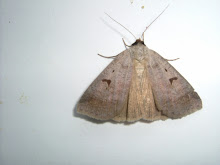In the last two weeks
members of the public, including the Beached Bird Survey teams and local bird
groups have reported over 200 Puffins found dead or dying along the Yorkshire
coast from Scarborough south to Withensea. Many more birds are likely to have
perished at sea. Those that have been washed ashore are emaciated with little
body fat these birds must have been exhausted or starved to death. It also
means that and many birds will be in poor body condition at the start of the
breeding season. Larger numbers of dead birds have been reported from the
Scottish and Northumberland coasts. This is the worst Puffin wreck since the
terrible easterly storms of 1947.
Initially, there
appeared to be a 50:50 split between immature and adult birds but in the
latter days more adults were found. Although no systematic analysis was carried
out some birds, including adults, were still
undergoing heavy wing moult with some birds apparently flightless – Puffin are
unique amongst our seabirds in undergoing a full moult of their flight feathers
in March, ahead of the breeding season. This will have contributed to the heavy
losses of Puffin when compared with other species. However, the most likely
cause of starvation may have been Puffins natural tendency to feed with much
shallower dives than the other auks thus making them potentially vulnerable when
very heavy seas and turbulent surface waters make feeding more
problematic.Thankfully fewer dead birds were reported over the Easter weekend as the wind strength dropped although small numbers are still being washed ashore daily.
Whilst this is a natural event it highlights the pressures these birds are under and the importance of locating and safeguarding their main feeding areas – you have to ask the Government why none of the proposed Marine Conservation Zones from Yorkshire to Northumberland coast have been recommended for designation!
Thousands of cuttlefish have also been washed ashore, along with large numbers of shellfish, lobsters and crabs.
many thanks to Keith for this info....


No comments:
Post a Comment